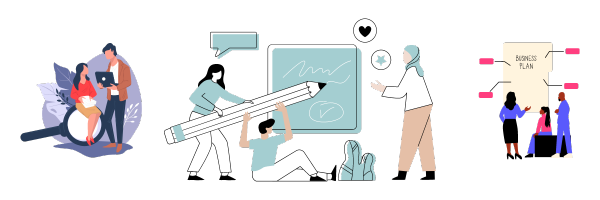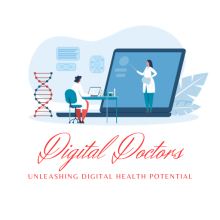Inspirational journeys
Follow the stories of academics and their research expeditions
Health Informatics Specialist

In an era where data drives decisions, health informatics
specialists play a pivotal role in bridging the gap between healthcare and
technology. With the global push for digitization in healthcare systems, this
career has emerged as a promising pathway, offering lucrative opportunities for
tech-savvy professionals passionate about improving patient outcomes. This
comprehensive guide explores the role, skills, certifications, salaries,
companies hiring, and online resources for aspiring health informatics specialists.
What is a Health Informatics Specialist?
A health informatics specialist manages electronic health
records (EHRs), patient data, and healthcare information systems to optimize
clinical workflows, enhance patient care, and ensure compliance with regulatory
standards. They serve as the backbone of modern healthcare IT, ensuring data
integrity and usability.
Key Responsibilities
- Managing
EHR Systems: Overseeing the implementation and maintenance of
electronic health records.
- Analyzing
Data: Using data analytics to identify trends and improve healthcare
delivery.
- Ensuring
Data Security: Implementing measures to protect sensitive patient
data.
- Compliance
and Regulation: Ensuring systems meet legal and regulatory
requirements.
- Training
Staff: Educating healthcare staff on new technologies and systems.
Essential Skills and Competencies
To excel as a health informatics specialist, you need:
- Technical
Proficiency: Knowledge of database management, coding languages (SQL,
Python), and data analytics tools.
- Healthcare
Knowledge: Understanding medical terminology and healthcare workflows.
- Analytical
Skills: Ability to interpret complex data and derive actionable
insights.
- Communication
Skills: Effectively liaising between technical teams and healthcare
providers.
- Problem-Solving:
Addressing technical issues promptly to ensure smooth operations.
Certifications and Licenses
Certifications enhance credibility and career prospects.
Popular certifications include:
- Certified
Health Data Analyst (CHDA): Offered by AHIMA, focuses on data
analytics.
- Certified
Professional in Healthcare Information and Management Systems (CPHIMS):
Recognized globally, provided by HIMSS.
- Certified
Electronic Health Records Specialist (CEHRS): Offered by the National
Healthcareer Association (NHA).
- Health
Informatics Graduate Certificate: Available from universities like
Stanford and Johns Hopkins.
- Google
Data Analytics Professional Certificate: A beginner-friendly
certification for foundational skills.
Licensing requirements vary by country, but most health
informatics roles prioritize certification over licensure.
Where to Get Certified Online
- Coursera:
Offers health informatics courses and certifications from top
universities.
- edX:
Provides programs from institutions like Harvard and MIT.
- AHIMA:
Offers CHDA and other specialized certifications.
- Udemy:
Affordable courses on health IT and data analytics.
- HIMSS:
Certification programs tailored for healthcare IT professionals.
Companies Hiring Health Informatics Specialists
- Cerner
Corporation (USA): A leading provider of health information technology
solutions. Website
- Epic
Systems (USA): Develops healthcare software focused on EHRs. Website
- Philips
Healthcare (Netherlands): Offers health informatics and patient
monitoring solutions. Website
- Medtronic
(Ireland): Combines informatics with medical device technology. Website
- Infosys
(India): Provides IT solutions, including health informatics services. Website
- Telus
Health (Canada): Specializes in virtual care and health informatics. Website
- Ping
An Good Doctor (China): Offers healthcare IT solutions and virtual
health services. Website
Salary Insights
Salaries vary by location and experience:
- USA:
$70,000 – $120,000 annually.
- Canada:
CAD 65,000 – CAD 100,000 annually.
- UK:
£40,000 – £70,000 annually.
- Australia:
AUD 80,000 – AUD 130,000 annually.
- India:
INR 600,000 – INR 1,500,000 annually.
Case Studies
- Epic
Systems Implementation in Rural Hospitals
- Challenge:
Transitioning from paper records to EHRs.
- Solution:
Health informatics specialists streamlined data migration and trained
staff.
- Outcome:
Improved patient data accessibility and reduced errors.
- Telus
Health’s Virtual Care Initiative
- Challenge:
Enhancing remote patient monitoring.
- Solution:
Integrated AI-driven analytics into existing systems.
- Outcome:
Early detection of health issues and personalized care plans.
Curated Online Resources
- World
Health Organization (WHO): Digital
Health Resources
- HIMSS
Learning Center: HIMSS
- National
Institute for Health and Care Excellence (NICE): Health Informatics Guidelines
- Healthcare
Information and Management Systems Society: HIMSS Certifications
- PubMed:
Research Articles
- HealthIT.gov:
Resources and Tools
- OpenWHO:
Free Courses
Conclusion
The demand for health informatics specialists continues to
rise as healthcare systems worldwide embrace digital transformation. With the
right skills, certifications, and resources, professionals can embark on a
rewarding career that blends technology and healthcare, making a tangible
impact on patient outcomes globally.
Tags:
Remote healthcare careers Health informatics specialist EHR systems healthcare IT health data analyst certifications global healthcare jobs telehealth roles digital healthcare transformation health informatics certification online0 Comments
Categories
- Career Development and Opportunities in Digital Health 166
- White Papers 39
- IELTS For Medical Professional 35
- OET Exam Preparation 30
- Entrepreneurship and Innovation 26
- Healthcare Innovation 17





Leave a comment